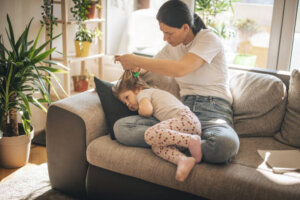Everyone needs to be attentive to maintaining hygiene to prevent the spread of germs and stay healthy. But children with special needs may require additional interventions to help with this daily practice. Motor skill challenges or sensory sensitivities can make everyday tasks, like washing hands or brushing teeth, more difficult.
For caregivers, finding ways to make these processes manageable is key. Read this guide to find some of the best strategies to help maintain hygiene for children with special needs.
Know What to Expect
Children with special needs may face greater challenges when trying to do tasks like washing their hands or faces. The feeling of water, smell of soap, or sound of a hairdryer can cause a disturbance for some children, while others may lack the fine motor skills to clean themselves independently.
That’s why consistency should be central to planning for any day for children with special needs. Without an established routine, children may grapple with sensory overloads or struggle to comprehend instructions. Or they may have executive functioning challenges that make shifts in routine difficult.
Creating consistent schedules, by contrast, can work wonders, especially with hygiene. Focusing on brushing teeth at the same time each day, for instance, can offer a predictable event.
Similarly, using the same language to describe a given task, like washing hands, builds familiarity. And even though consistency is best, it may be advisable to offer a few options within that routine. Letting a child choose between two toothpaste flavors, for instance, gives them some autonomy.
Don’t Be Afraid to Seek Assistance

While caregivers for children with special needs generally will encounter the same daily routines, sometimes unique situations, like head lice, make seeking help a necessity. Applying traditional lice treatments can be difficult, and the chemicals can be abrasive.
Similarly, trying to comb through hair to get rid of lice can be hard on children with sensitivities to touch. The combing process takes a long time, and if the lice come back, it simply extends the challenges.
Lice is a scenario where turning to professionals is the easiest and safest solution. They’ll come equipped with safer treatments and the ability to work with each child’s unique set of needs. Click here to book a lice removal appointment in San Diego with a skilled specialist. For parents, this effort can translate to less stress and more success.
Adapt Your Product Selection
Additionally, hygiene help can come in the form of specialized products for children with fine motor skill delays. Turning to electric toothbrushes can make brushing teeth easier, and some brushes with softer bristles may be more appropriate for kids with autism who have texture sensitivities. Children may benefit from sponges with handles or sponge baths, too, if they’re apprehensive about bathing.
Some children with developmental conditions may prefer unscented toiletries. Products without fragrances or noticeable textures may be best. Look for microfiber towels, for instance, to help minimize discomfort for those with sensory sensitivities.
Collaborate for Success
Ultimately, taking small steps and working with those who know your children best are critical on the road to maintaining hygiene. Work with your child’s teachers or therapists to hone your strategies. And don’t worry if a child is resistant at first. You may need to make adjustments before finding a solution that works. With persistence and patience, you’ll set your child on the road to lifelong hygiene skills.

Recent Comments